The WE United Project, a football organization in Nepal led by and for women, recently launched the Mahila Premier League—the country’s first-ever women’s futsal league. With eight participating teams, the league is a continuation of WE United’s work creating opportunities for Nepali women to play the sport in a country where women’s participation in football is not encouraged.
Founded in Kathmandu in 2014 by Anne McGuinness and Amanda Cats-Baril, the organization began as a product of two friends who shared a passion for football and a commitment to human rights. McGuinness and Cats-Baril were inspired by the impact football had on their own lives and wanted to help embolden and empower women and girls in Nepal. For the past several years, the organization has opened fields specifically for women, hosted weekly matches and regular tournaments, and built a community of players who can now play the beautiful game in a safe and competitive setting.
We got a chance to talk with the two founders of The WE United Project to get an idea of how women’s football is changing in Nepal and what the new futsal league means for aspiring players on and off the pitch.
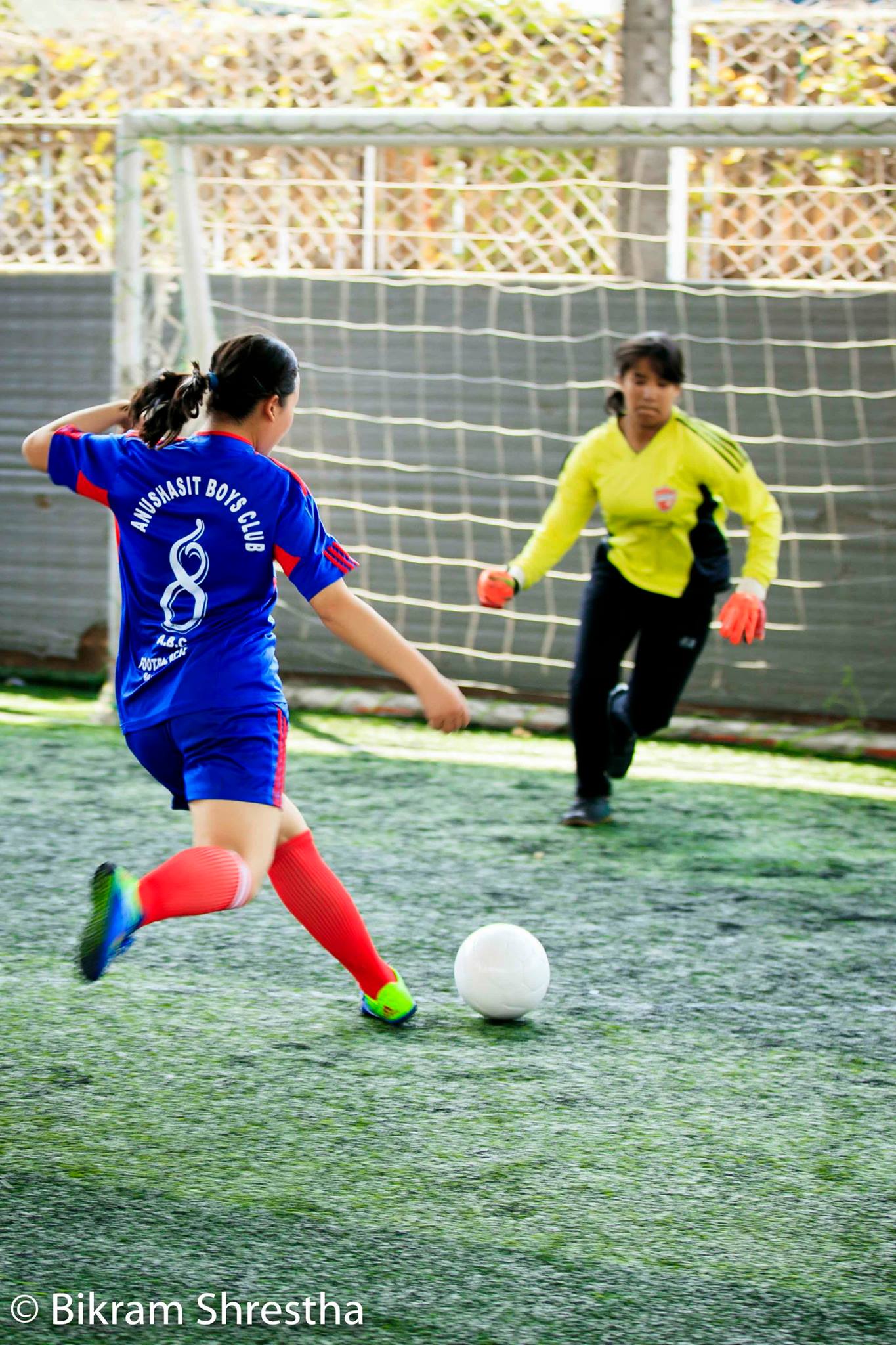
Urban Pitch: Could you tell us about The WE United Project? How did it get started?
WE: The WE United Project was founded with a mission to empower women and girls in Nepal by creating safe spaces to impart leadership training, life skills development, and team building through dynamic sport-based activities. It is a women-led initiative founded on the belief that sport enables women and girls to develop social networks, physical strength, self-belief, and the confidence to fully participate in any sphere of life they choose.
The WE United Project has organized weekly games for women in Kathmandu for the last four years. The games provided an initial safe space for women and girls who had not had opportunities to play sport competitively and safely, as well as to form a community of active women. WE also hosted three consecutive Women’s Tournaments in honor of International Women’s Day in 2014, 2015, and 2016. Every year this event grew in participation, recognition, and sponsorship. In 2016, the tournament was the largest for women to date in Nepal with 96 women participating from 15 countries, ranging in age from 12 to 50 years old.
Many girls who get a chance to play soccer at school fall in love with the game and then seek out opportunities to play—but usually struggle to find them.
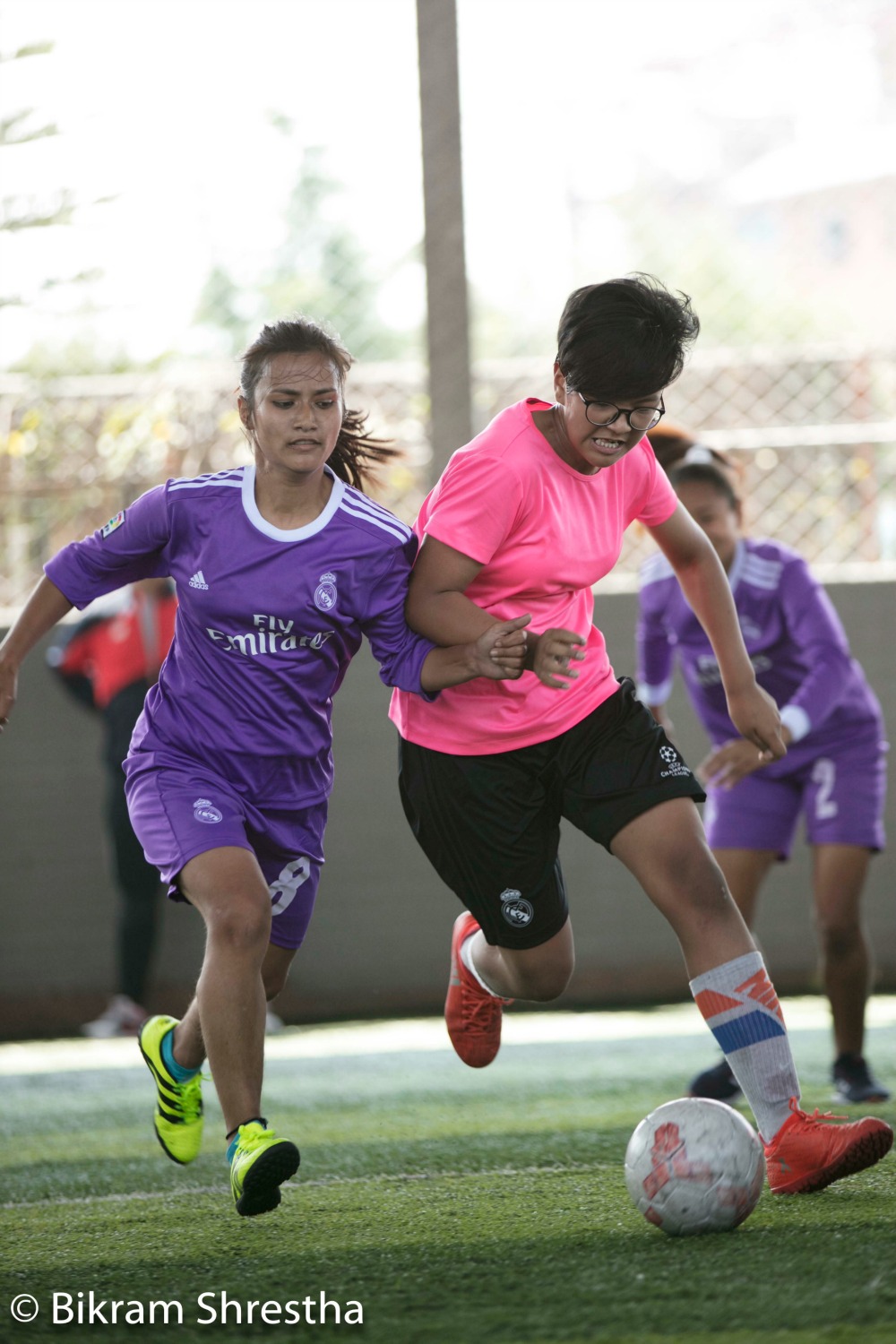
The WE United Project is operated by a team of six women and two employees who joined us for our first-ever eight-week league, The Mahila Premier League. This is also empowering Nepali women off the pitch to develop leadership and professional skills.
Following the devastating earthquakes that hit Nepal in April 2015, WE also worked in coordination with a local organization, Project Fight Back, to carry out self-defense trainings for women in recovery and relocation camps.
The sport of futsal is fairly new to Nepal. How would you describe the football scene overall in Kathmandu? How big is the sport among women?
Futsal is fairly new to Nepal, and even newer to the women of Nepal. Overall, people in Nepal love the sport of soccer and the British Premier League as well as the European and World Cups are widely watched. When futsal spaces first started opening in Kathmandu, they were immediately a huge success, in large part due to the lack of public/outdoor/sporting venues in the city. Now, there are futsal pitches all over Kathmandu and many men’s tournaments. That said, there are still very few avenues for women to play.
In general, women in Nepal are not encouraged to participate in sport, especially beyond their childhood, although this perspective is changing in urban areas like Kathmandu. The strongest female players tend to be trained by the police or army teams. Some schools are starting to establish teams or integrate soccer into their physical activities but the level of fitness and training is very remedial. Many girls who get a chance to play soccer at school fall in love with the game and then seek out opportunities to play—but usually struggle to find them. This is where The WE United Project comes in.
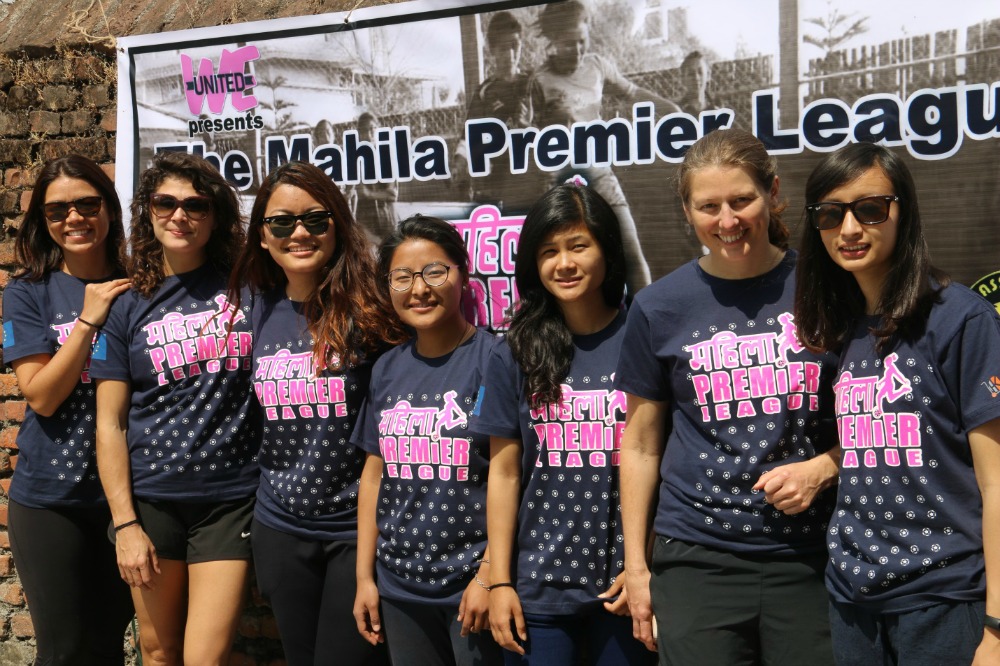
WE organized weekly games on Saturday mornings, which is a safe time for young girls to come out to play—and a time which parents and families are also comfortable with. We have seen a huge improvement in skill levels amongst female players in the last four years and it is much easier for us to organize activities now given the increased demand and interest. Additionally, the tournaments—and now the League—have provided amazing opportunities for women to network with each other. We now have a broad network of 80 female players who all know each other to some degree.
Your organization recently launched the Mahila Premier League (MPL), Nepal’s first-ever women’s futsal league. What has the response been like so far by the players? What about the fans?
So far, the response from players has been amazing. We have eight teams participating with up to 10 players each. We were able to provide all of our players with water bottles, t-shirts, and notebooks. Each week, the players have showed up excited to play, to compete, and to demonstrate in public what we are capable of.
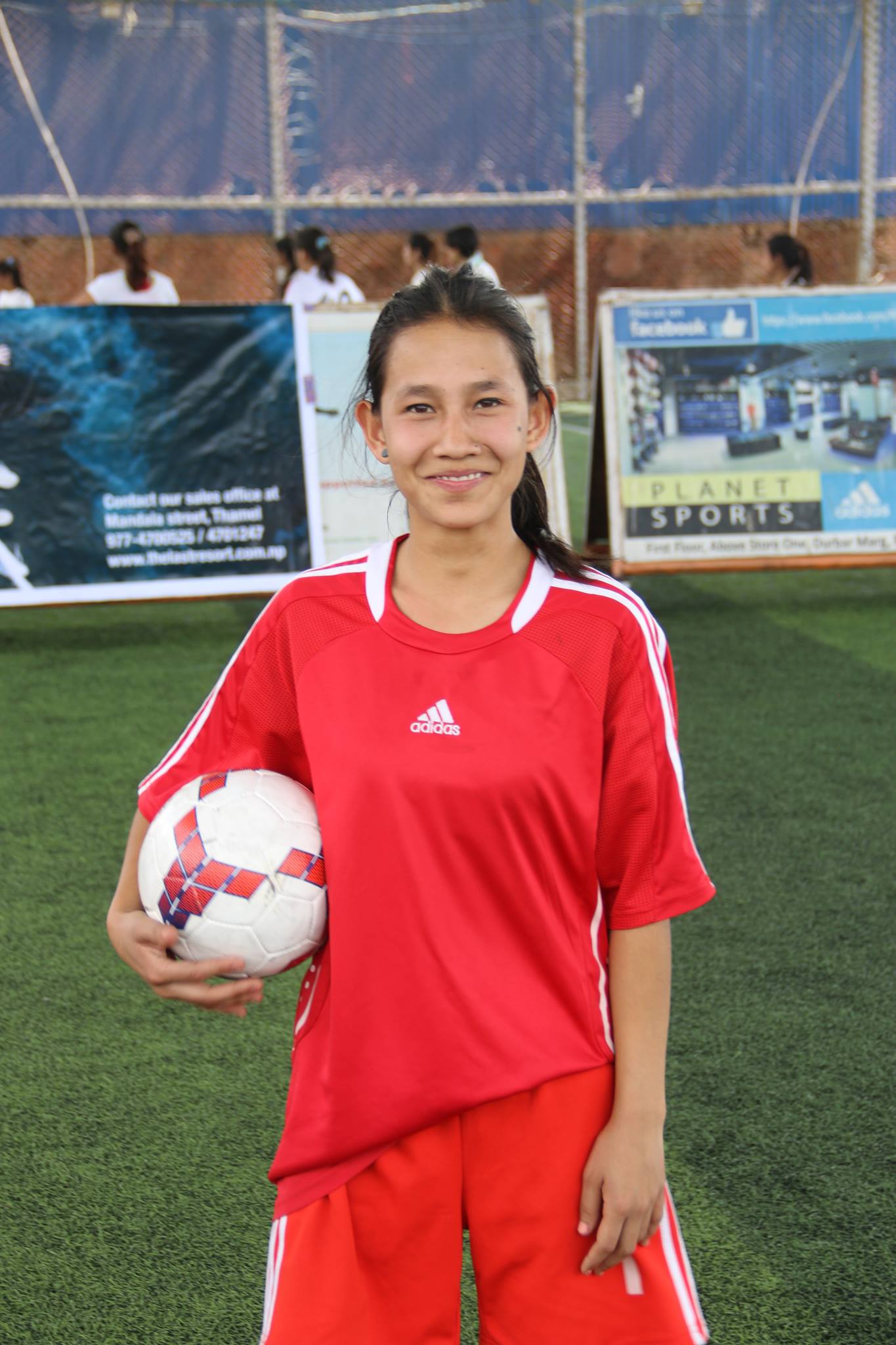
We post updated league tables and photo albums on Facebook and on our web site. The MPL players have been excited about this as well—following the league and top scorer updates, and tagging themselves in and sharing photos. We believe that giving people access to photos of themselves looking strong—and also putting images of women displaying their strength and sportsmanship in the public domain—has a major empowering effect.
… Women in Nepal have traditionally not been encouraged to participate in sport. The reasons for this range from social stereotypes about women’s physical strength, to cultural norms surrounding proper attire for women …
This is our same approach to fans—we would like our fans to begin to see women in a new light through their observance of the Mahila Premier League. Fans have already commented that they are amazed to see women playing so well.
What are some of the challenges in promoting women’s futsal in Nepal? How is the MPL strengthening the connection between women’s empowerment and sport?
Women’s inequality continues to be a huge challenge for Nepal. While Nepal has a woman president, chief justice, and speaker of the house, in general women around the country are still viewed as second-class citizens. Literacy and school retention rates are lower for women than men and gender-based violence, including discriminatory practices against women on their periods, is widespread.
We would like to see sport changing how women view themselves, how others view women …
As part of a patriarchal mindset, women in Nepal have traditionally not been encouraged to participate in sport. The reasons for this range from social stereotypes about women’s physical strength, to cultural norms surrounding proper attire for women, and to the real-time constraints that women face based on expectations about their domestic and familial activities.
All this being said, particularly in Kathmandu (a city of 3.8 million people), cultures and mindsets are changing, and many women in Kathmandu are challenging cultural norms. Unfortunately, there is still not a lot of room for women to consider sport as a professional option. The women’s sporting teams in Nepal receive far less support from the government of Nepal than men’s teams, with low or no compensation, and fields and equipment that are of lower quality than those provided to men.
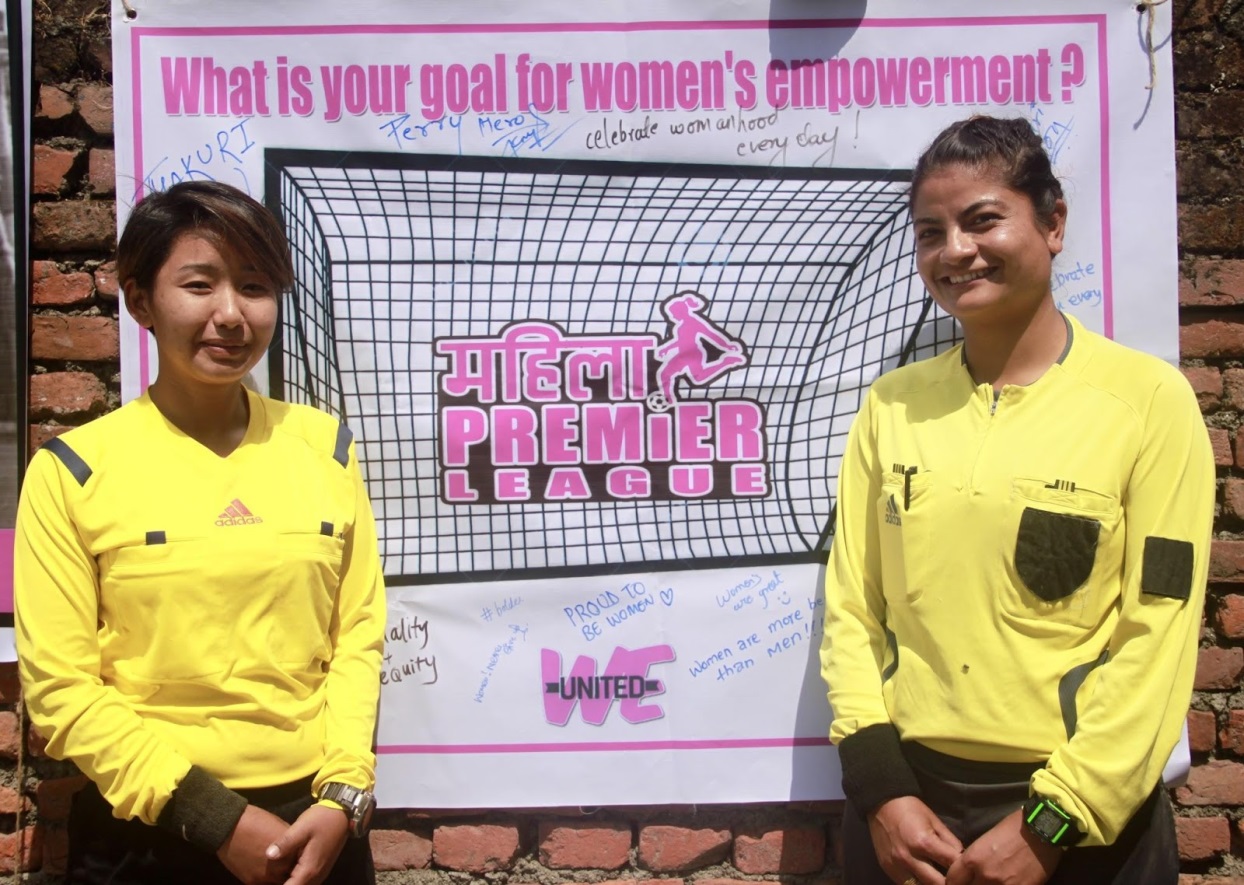
The WE United Project is also seeking to impact this. The MPL is officiated by FIFA-certified female referees to show one way in which women can pursue sport professionally. Also, engaging our young League Coordinators (thanks to support from our sponsor the European Union) is showing that girls with IT and communications skills can also participate in promoting women’s empowerment professionally.
All MPL players will be approached to join an outreach committee to serve as mentors for young women and girls interested in playing futsal, with a particular focus on girls enrolled in public schools in Kathmandu who may not have the infrastructure or social support to engage in sport.
Looking forward, what does The WE United Project envision for the MPL and for Nepali women’s football more generally? What is something you’re especially excited about?
Besides our continued commitment to create safe spaces for women’s empowerment through sport—continuing our Saturday games, the organization of leagues and tournaments and the outreach activities described above—we envision bringing more Nepali women together to pave the way forward for other Nepali women’s empowerment. We would like to see sport changing how women view themselves, how others view women, and hopefully—therefore—contributing to a broader agenda of women’s empowerment and equality.
For more information about The WE United Project, visit their web site here.
This interview has been edited for length.
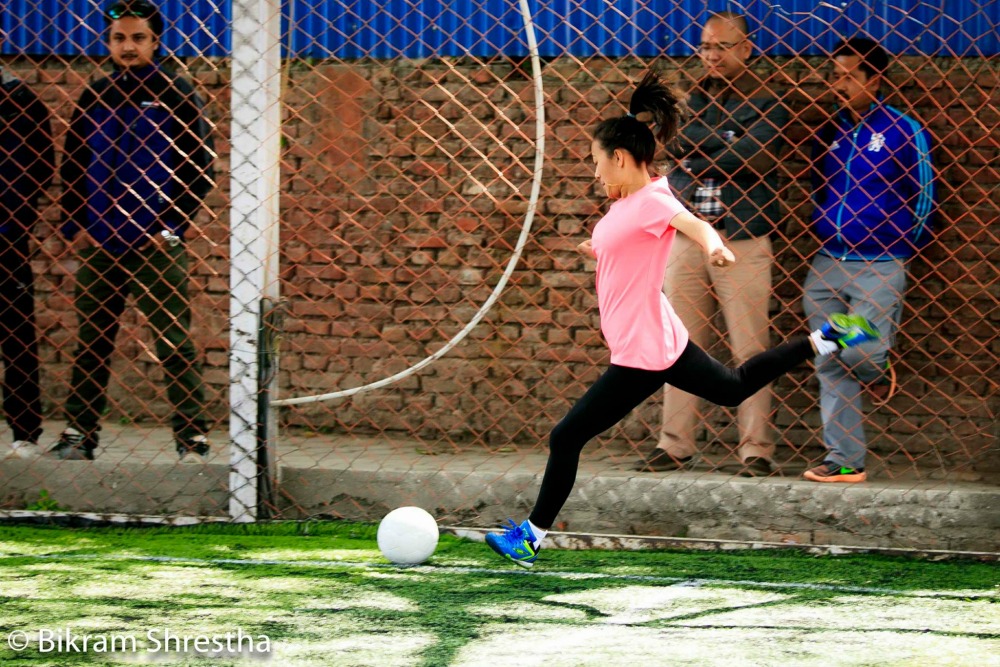
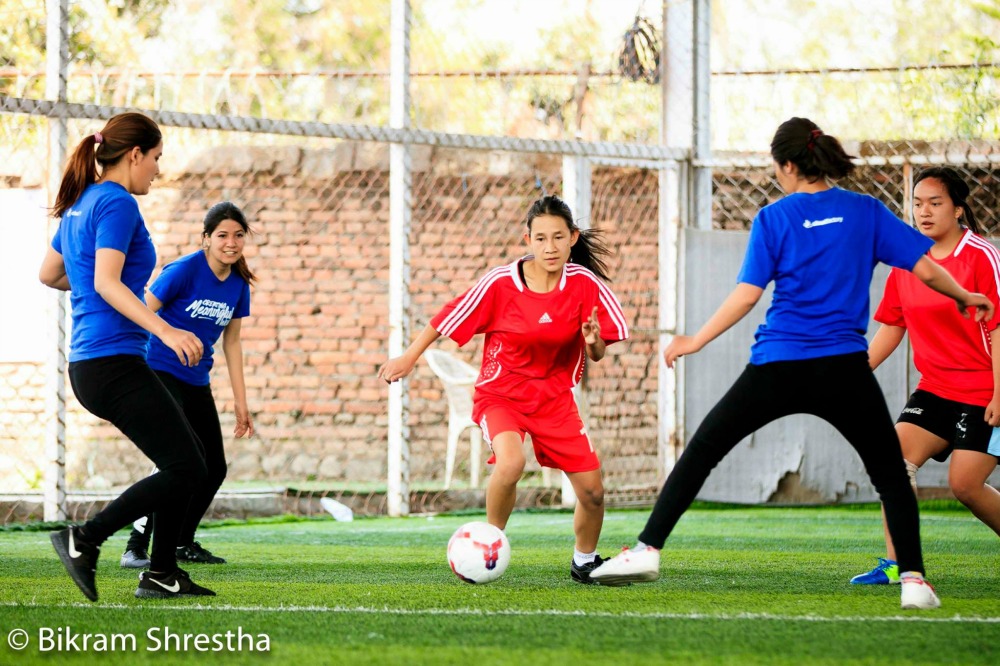
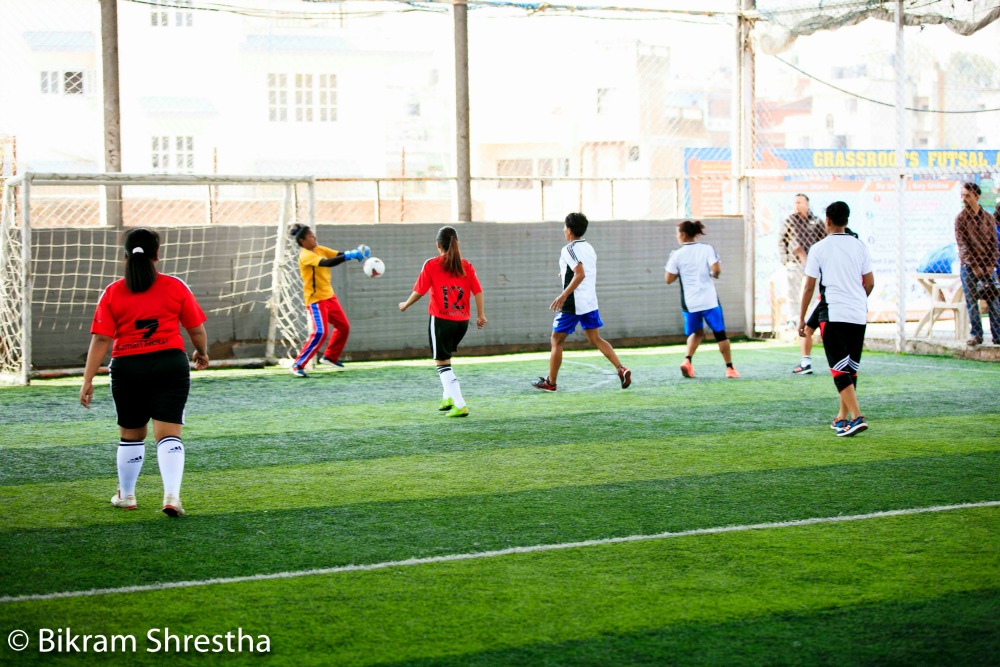
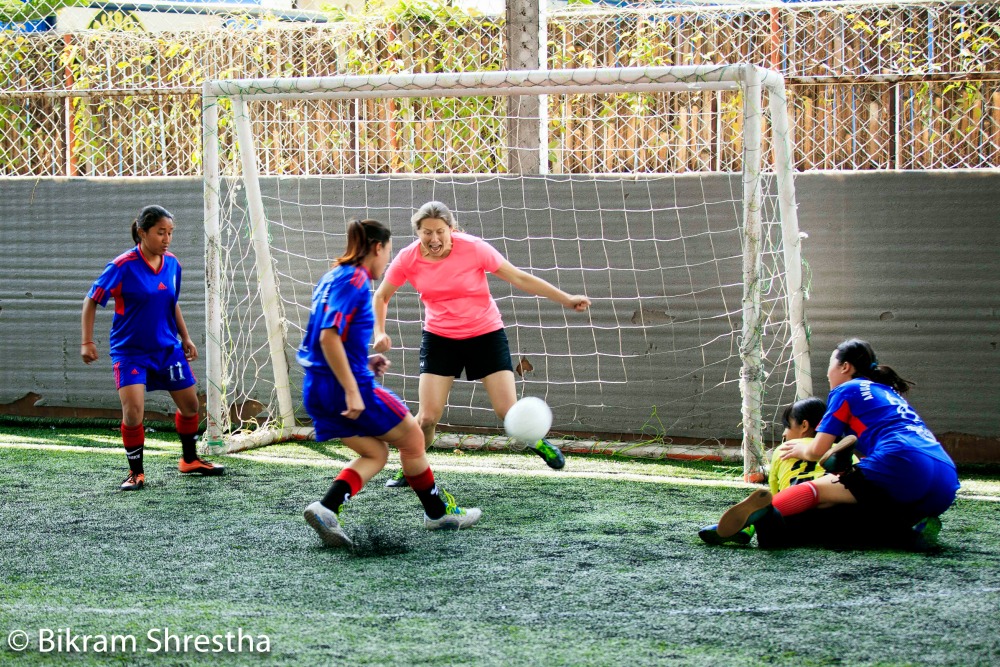
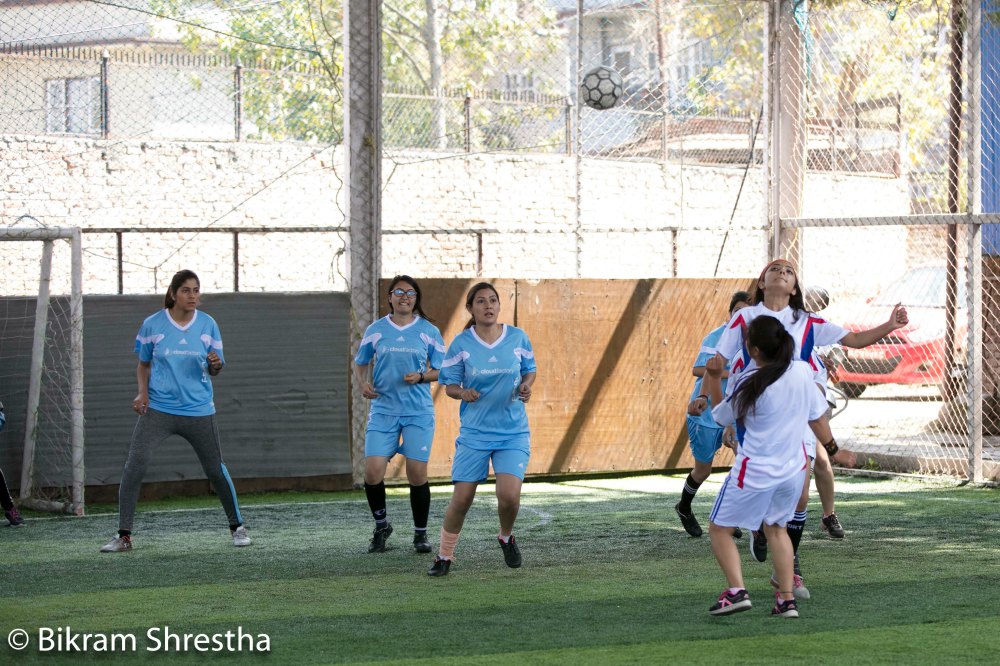
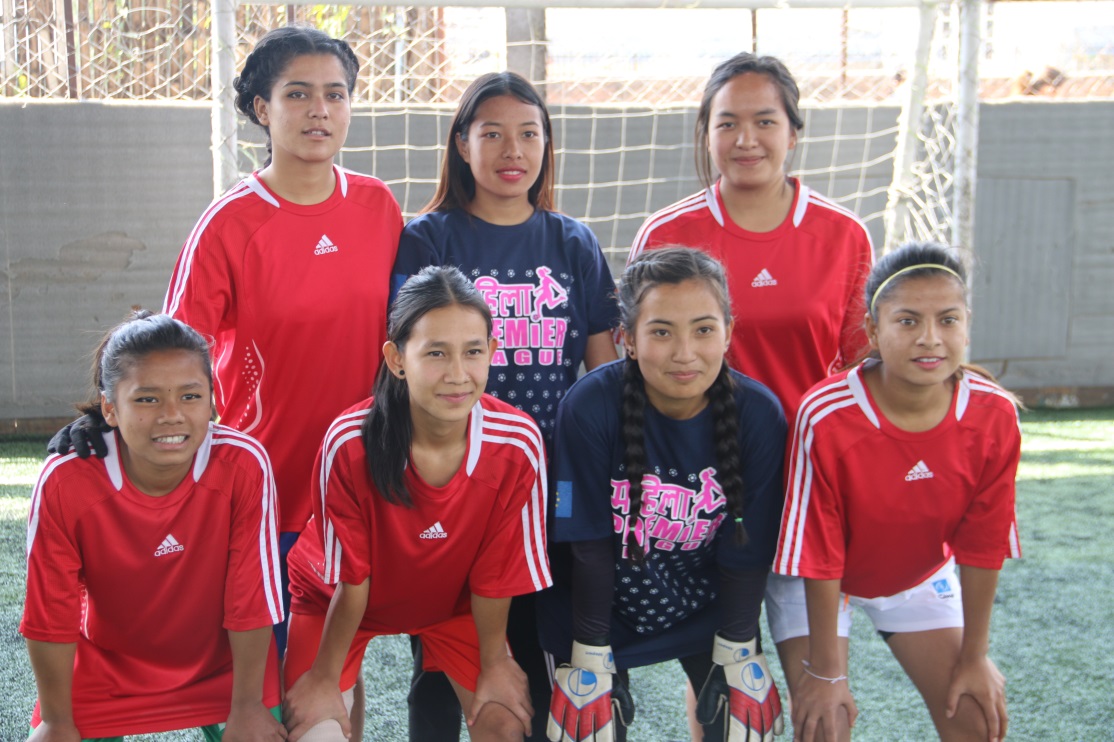
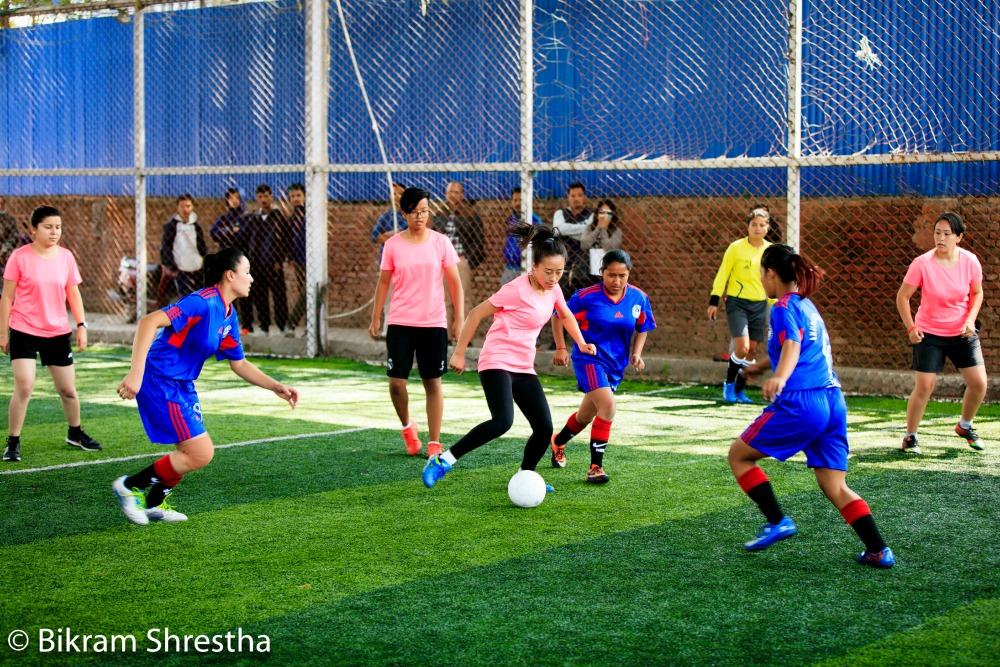








[…] Excerpt from Urban Pitch […]